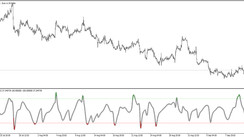Understanding the Basics of Arbitrage Trading
Arbitrage trading is a strategic method that capitalizes on minor price differences in comparable or identical assets across separate markets. It's a tactic that exploits fleeting variations in the pricing of unified or akin financial commodities in disparate markets or in distinct forms.
As an inherently low-risk strategy, arbitrage can potentially provide substantial returns. However, it's crucial to remember that these arbitrage situations are temporary and can be challenging to discover.
Working Mechanism of Arbitrage Trading
Arbitrage trading profits from the fact that identical assets may have varying valuations across different markets. As an illustration, if gold's price in New York is $1,000 per ounce and $990 in London, an arbitrage trader can buy gold in London and sell it in New York, thereby making a profit of $10 per ounce.
Successful arbitrage trading necessitates the fast identification of arbitrage situations and executing trades before the asset's prices reconcile. Access to live market data and the capacity to make swift trades is essential for this.
The Optimum Indicators for Arbitrage Trading
The identification of arbitrage opportunities can be assisted by several technical indicators:
- Moving averages: They can help identify an asset's price trends. Arbitrage traders can buy when the cost is below the moving average and sell when it's above.
- Bollinger bands: These can reveal overbought and oversold conditions. Arbitrage traders can buy when the cost is below the lower band and sell when it's above the upper band.
- Relative strength index (RSI): The RSI measures price momentum. Arbitrage traders can buy when RSI is low and sell when it's high.
Best Assets for Arbitrage Trading
The ideal trading assets for arbitrage are typically highly liquid and possess significant price transparency. The most common ones include:
- Currencies: As globally traded assets, tiny price discrepancies can occur between different exchanges, making them ideal for arbitrage trading.
- Stocks: Arbitrage opportunities may arise in stock trading, but less frequently due to lower liquidity compared to currency markets.
- Futures contracts: These contracts traded on exchanges are also popular due to a high level of price transparency.
- Options: Though complex in nature requiring a higher level of expertise, options are also used for arbitrage trading.
Expert Opinions on Arbitrage Trading
Arbitrage trading is regarded favorably among experts. While some see it as a low-risk method to generate income, others view it as a high-risk tactic demanding precision execution.
Ideal practices for arbitrage trading include dealing with reputable brokers providing real-time data, using technical indicators to spot opportunities, and taking a conservative approach by starting small and scaling up as experience grows.
Conclusion
The choice to embrace arbitrage trading lies with individual traders. It holds the potential for substantial profits but shouldn’t be undertaken without understanding potential risks. Prior research and expert consultation are advised before making any investment decisions.





